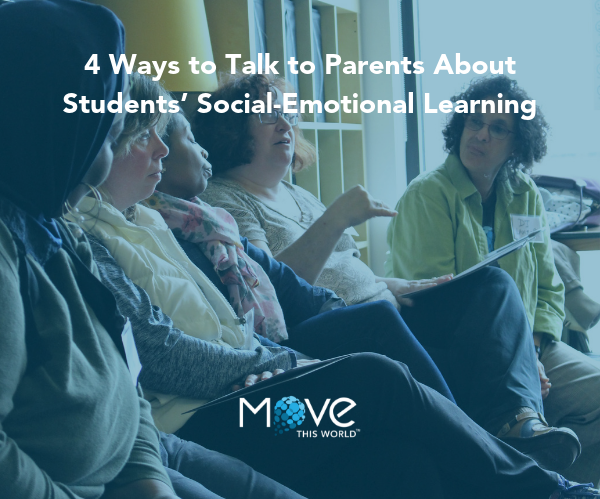
When students begin asking their parents for help with homework, many differences between present-day education and what was taught back in parents’ classrooms come to light.
For example, parents often express confusion over discovering that traditional long division no longer exists within the Common Core State Standards. Let’s just say it can be hard to keep up.
This is especially true for concepts that weren’t explicitly taught or even introduced throughout parents’ education. When teachers start talking about social-emotional learning–or even worse, just use the acronym SEL–eyes begin to glaze over. It’s a whole new idea for parents to absorb, and it wasn’t part of the conversation when they went to school. That means we need to establish a different approach.
Findings from a recent study show that education jargon doesn’t translate well for parents; they prefer the term “life skills” over social-emotional learning because it is an easily understood term that is, perhaps, more digestible. And the truth is, SEL is already on many parents’ radars. In fact, 78 percent of parents believe these life skills are equally as important as academic development.
Research also suggests that many parents claim ownership over their child’s social-emotional development, though they expect for this development to be supported in school. Parents may feel uncomfortable with certain terminology and hesitant to have their students participate in SEL programs and curriculum based on factors such as cultural influence, individual parenting style, and a lack of understanding.
So how can school leaders and educators effectively talk to parents about social emotional development?
1. Introduce Important Terms
What parents and educators can agree on is the importance of the skills students gain from SEL: social awareness, relationship skills, responsible decision-making, self-management, and self-awareness. Introduce parents to the important terms and how they apply to social and emotional development–terms like resiliency, empathy, self-regulation, gratitude, active listening, and growth mindset.
2. Meet Them Where They Are
Understanding the families you’re communicating with will affect the implementation of SEL programming and curricula. Take into consideration the various cultural influences and life experiences of your students and their families. These factors are likely to have a critical impact on these conversations and SEL requires us to confront our own biases.
3. Be Ready for Difficult Conversations
When talking to families about social-emotional development, most parents will want to know their child’s individual progress and areas where improvement is needed. If a concern surrounding a student arises, are you prepared to discuss these sensitive subjects with parents? Expressing concerns with empathy and coming up with collective strategies collectively will help support your students’ development. Ground the conversation in examples about what you’re witnessing in the classroom so parents get a clear understanding of concerns.
4. Involve Students
Show families the progress their students are making in social emotional development and provide ideas for how they can continue developing these skills at home. Are there any special projects students are working on that can be taken home and shared with their families? Are there any take-home activities that students can do with their parents? Is there something that can be showcased on your school or district website?
Students should also feel empowered to share the concepts they’re learning at school with their parents and loved ones. Encourage students to discuss their mental and emotional health at home; encourage them to share the various emotional management strategies, expression techniques, and extended vocabulary they’re acquiring in the classroom.
Involving parents in social-emotional learning helps students learn from example, and it forms deeper connections within the community. Equipping staff, educators, and district leaders with the knowledge and the tools to effectively communicate with parents about their child’s social-emotional development is a necessary measure that will support the success of SEL initiatives.
This article was originally published by EdWeek Market Brief on May 2nd, 2019.

